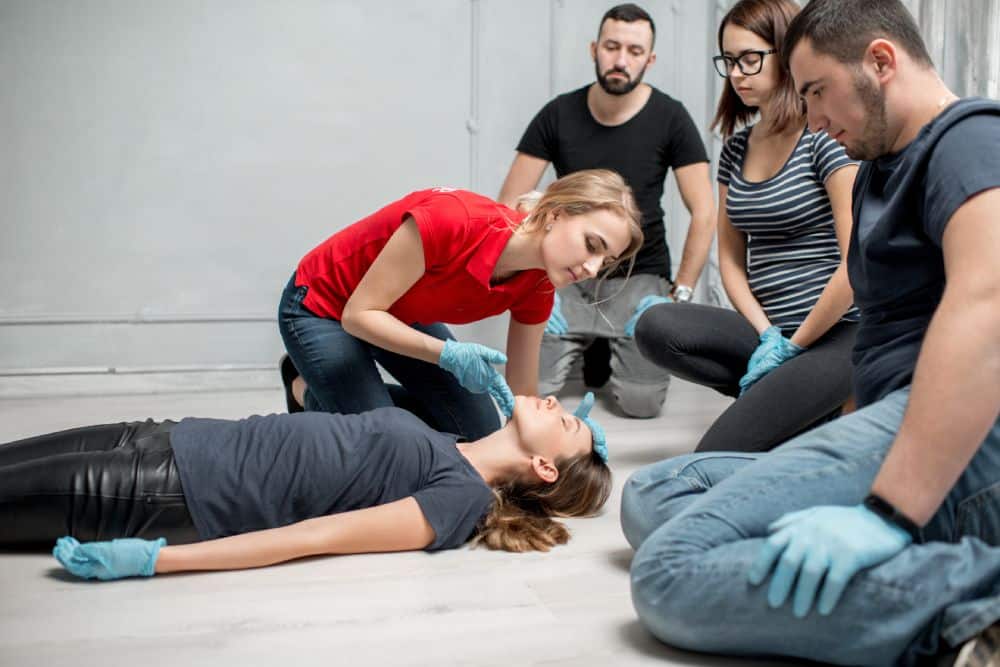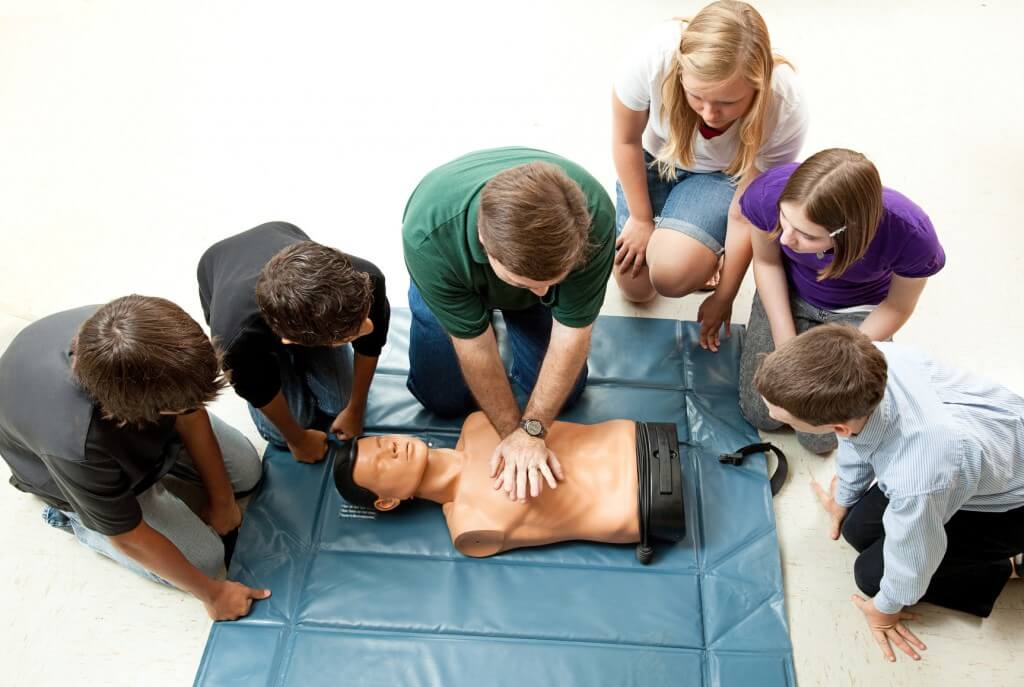Introduction
Cardiopulmonary resuscitation (MOUTH-TO-MOUTH RESUSCITATION) is a lifesaving method that everybody need to understand. Nonetheless, in spite of its important value, numerous misconceptions surround mouth-to-mouth resuscitation practices and certification. Numerous people might be reluctant to get licensed because of these misunderstandings, which can eventually set you back lives in emergency situations. This article intends to disprove widespread misconceptions concerning CPR while emphasizing the value of getting licensed through certified first aid courses By recognizing the facts, you can equip yourself and possibly conserve a life.
Common Mistaken beliefs Regarding CPR and Why You Should Get Certified
What Is mouth-to-mouth resuscitation? Understanding the Basics
CPR stands for cardiopulmonary resuscitation, a treatment created to restore breathing and circulation in an individual that has stopped breathing or whose heart has actually ceased whipping. The technique includes chest compressions incorporated with man-made ventilation methods such as mouth-to-mouth breathing or using a bag-mask device.
- Key Components of mouth-to-mouth resuscitation: Chest Compressions: These assist keep blood circulation to crucial organs. Rescue Breaths: These give oxygen to the lungs. Automated Outside Defibrillator (AED): A gadget that can stun the heart back into rhythm in case of certain heart arrests.
Misconception 1: Only Physician Can Do CPR
One typical myth is that only trained medical professionals can execute mouth-to-mouth resuscitation successfully. While doctor are definitely experienced at it, any individual can learn exactly how to perform CPR via CPR courses
- The Fact: Laypersons can be trained to carry out reliable CPR. Basic strategies are simple and can be understood by any person going to learn. Bystanders commonly play crucial duties in saving lives before specialist help arrives.
Misconception 2: CPR Is Just Beneficial for Heart Attack Victims
Another prevalent false impression is that mouth-to-mouth resuscitation is entirely for individuals experiencing heart attack. Actually, mouth-to-mouth resuscitation can be useful in numerous emergencies.
- Other Scenarios Where CPR Serves: Drowning incidents Drug overdoses Choking sufferers where the airway has been compromised
Misconception 3: You Need To Stay Clear Of Giving Rescue Breaths
Many individuals believe rescue breaths are unneeded or even unsafe as a result of the risk of infection or other issues. This originates from complication concerning exactly how COVID-19 might influence these practices.
- The Truths: Rescue breaths are crucial for offering oxygen. During circumstances like sinking or opioid overdose, rescue breaths end up being crucial. Hands-only mouth-to-mouth resuscitation is advised when someone is inexperienced or hesitant however recognizing both techniques stays vital.
Misconception 4: You Can't Hurt A Person by Performing CPR Incorrectly
While it's true that doing mouth-to-mouth resuscitation incorrectly might create some injury, not trying it in any way may bring about fatality.
- Understanding the Dangers: Rib fractures may take place throughout hostile upper body compressions. Any activity taken is far better than doing nothing; contemporary guidelines highlight that "something" is much much better than "absolutely nothing" during cardiac arrest situations.
Misconception 5: When You're Trained, You Don't Need More Training
Some individuals think that once they have actually completed a course, they don't need additional training or recertification.
- Why Continuous Training Matters: Techniques progress over time based upon brand-new research. Regular refresher courses keep your abilities sharp and guarantee you're current with current best practices.
Misconception 6: Kid Do Not Need CPR Training
Parents often presume they will not need to do mouth-to-mouth resuscitation on their youngsters since youngsters do not experience heart events as often as adults do.
- The Fact for Parents: Children can experience breathing concerns, choking incidents, or sinking circumstances calling for instant attention. Learning pediatric-specific techniques guarantees preparedness during emergencies entailing children.
Importance of Getting Qualified in First Aid and Mouth-to-mouth Resuscitation Courses
Why Qualification Issues in Emergency Situation Situations
Being certified in emergency treatment and mouth-to-mouth resuscitation offers several advantages beyond simply finding out life-saving skills:

- Enhances self-confidence when facing emergencies Increases awareness of safety and security protocols Encourages even more people to advance in emergency situations
Benefits of Taking a First Aid Course
Comprehensive Ability: Participants learn not just about CPR however likewise standard emergency treatment principles such as injury treatment and managing fractures. Legal Protection: Qualification frequently features Good Samaritan legislations protection when helping a person during an emergency. Career Opportunities: Numerous tasks need first aid accreditation as part of their safety methods; being licensed improves employability in fields like teaching, training, health care, and childcare.FAQs About Typical Misconceptions Regarding CPR
FAQ 1: What kind of training do I require for reliable CPR?
You needs to enroll in identified CPR courses that cover both adult and child resuscitation approaches effectively.
FAQ 2: How usually should I renew my emergency treatment certificate?
It's recommended to restore your first help certificate every two years considering that guidelines alter frequently based upon emerging research.

FAQ 3: Is hands-only compression better than conventional CPR?
For untrained spectators or those unpleasant giving rescue breaths, hands-only compression works however knowing both methods gives a higher opportunity of survival if trained properly.
FAQ 4: What resources are readily available for finding out about very first aid?
Numerous organizations supply on the internet sources together with physical courses; trusted platforms include the American Heart Association and Red Cross internet sites which detail first help courses offered near you.
FAQ 5: Are there any age constraints on taking an emergency treatment course?
Most first aid courses welcome participants of any ages; nevertheless, some specialized classes might be tailored toward certain age groups (e.g., youngsters vs adults).
FAQ 6: Does my workplace require me to get certified?
Certain http://erickryix475.almoheet-travel.com/the-life-saving-relevance-of-cpr-stories-from-the-field offices-- particularly those including public communication-- commonly need workers to have legitimate qualifications in emergency treatment and fundamental life assistance (BLS).
Conclusion
Understanding the truth behind typical mistaken beliefs concerning mouth-to-mouth resuscitation is important for raising recognition about this life-saving technique. Whether you're a moms and dad wishing to shield your child or a staff member seeking certification for expert advancement, obtaining certified with correct first aid courses arms you with the understanding required for acting emphatically throughout emergencies. Keep Adelaide first aid certification in mind-- anyone can discover how to do reliable CPR regardless of background; do not let misunderstandings hinder you from ending up being empowered! So why wait? Sign up today for a CPR course!

This comprehensive guide looks for not just to dispel misconceptions bordering CPCR Brisbane First Aid Course Near Me yet likewise serves as a motivation for everybody to look for accreditation so they as well can contribute positively during emergencies!